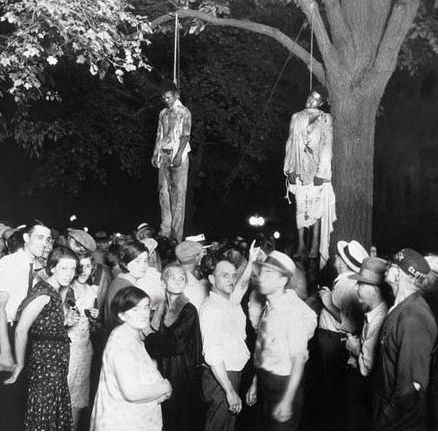But I Didn’t Do It!

By STANLEY FISH
The New York Times
March 21, 2007
Emboldened by the State of Virginia’s apology for slavery — the measure passed both houses unanimously — some Georgia lawmakers are in the process of introducing a similar resolution in their legislature. The reasoning behind the apology movement is straightforward: a great wrong was done for centuries to men and women who contributed in many ways to the prosperity of their country and were willing to die for it in battle; it’s long past time to say we’re sorry.
Resistance to the apology movement is also straightforward. There is the fear that because an apology is an admission of responsibility for a prior bad act, apologizing might establish a legal or quasi-legal basis for reparations. And there is also the objection that after so many years an apology would be merely ceremonial and would therefore be nothing more than a “feel good” gesture.
But the objection most often voiced is that the wrong people would be apologizing to the wrong people. That was the point made by Tommie Williams, the Georgia Senate majority leader, when he said: “I personally believe apologies need to come from feelings that I’ve done wrong,” and “I just don’t feel like I did something wrong.”
Williams’s counterpart in the house, Speaker Glenn Richardson, made the same claim of innocence on behalf of his colleagues. “I’m not sure what we ought to be apologizing for,” given that “nobody here was in office.”
Mr. Richardson’s statement at least has the merit of recognizing that an apology would not be made by an individual — the idea isn’t to go to some slave cemetery and speak to a gravestone — but by an institution. He just thinks that because no present member of the institution was around at the time of the injury, an apology would make no sense.
But this is very bad reasoning, and you can see why if you read just a few recent Supreme Court cases on any subject. Invariably, the justice delivering the court’s opinion will cite a precedent from a case decided 50 or 100 years ago, and say something like, “In Smith v. Jones, we ruled that ...” But of course he or she didn’t actually — that is, personally — rule on anything in 1940 or 1840, so what’s with the “we”?
The answer is that by using “we” to refer to an action taken before any present member of the court had reached the age of reason or was even alive, the justices acknowledge that they are part of an ongoing enterprise, and as such are responsible for its history; not as individuals, but as persons charged with the duty of carrying on a project that precedes them and will survive them.
At times “carrying on” includes revising and even repudiating earlier stages in that project. By overruling a precedent — a rare occurrence, to be sure — the justices say, collectively and on behalf of everyone who has ever donned the robe, “Oops, we got that one wrong; sorry, here’s another try.”
Legislatures do not overrule; they repeal, but the principle is the same. Legislators meeting on the first day of a new term don’t say, “O.K., let’s start all over again and figure out what laws we would like to have on the books.” Instead, they regard themselves as picking up a baton passed to them by their predecessors whose actions they now “own,” even in those instances when no legislator now sitting performed them. The vast majority of those actions will continue in force, but a few will be revisited, and of those, a smaller number will be modified or even reversed.
Sometimes a mistake now acknowledged can be remedied by changing the law. Sometimes that remedy would come too late, and another form of response is called for, as when the United States passed the Civil Liberties Act of 1988, deploring the internment of Japanese-Americans during World War II and authorizing payments of $20,000 to each surviving internee.
Ronald Reagan signed that act into law, and two years later President George H. W. Bush formally apologized for “the wrongs of the past.”
Does that mean that Georgia should apologize, too? Not necessarily. The question is a political as well as a moral one, and it is not my intention here to answer it. All I am saying is that while there may be good reasons to resist apologizing, the “we didn’t personally do it and those it was done to are dead” reason isn’t one of them.







0 Comments:
Post a Comment
<< Home